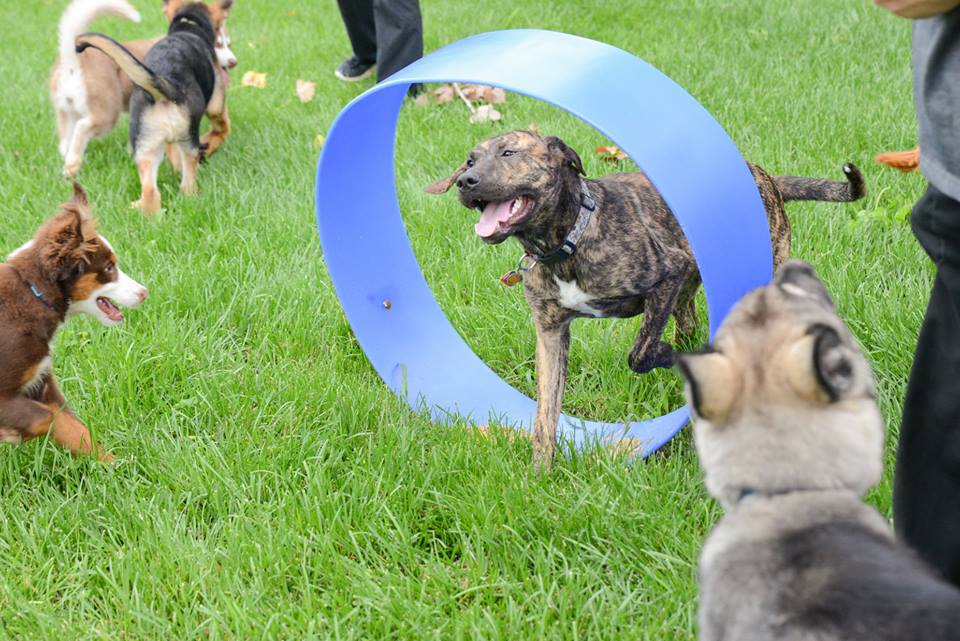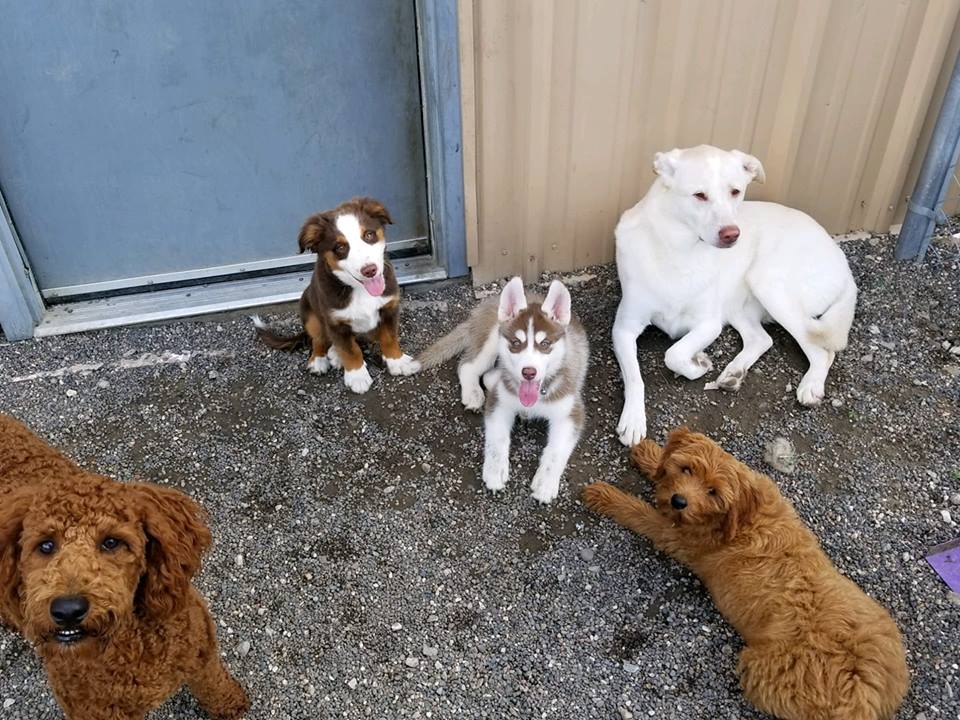Posts in Category: ZimmVet News & Events
Dog Play Styles
By Kari Meyer, ZimmVet Daycare & Hotel Manager – ZimmVet-763-856-4848

Dog Daycare is a relatively new concept in the world of pet care that offers so many benefits to your furry family members! The opportunity to socialize, exercise, and get interaction throughout the day is vital to all dogs, though each dog socializes, exercises, and interacts in a unique way. We see several different play styles in the 400 plus dogs that are enrolled in our Dog Daycare and Pet Hotel programs here at ZimmVet and we love to watch how each dog develops his own play style over time.
Here, Kitty Kitty
Some dogs have a cat-like play style. Ironic, right? We describe the movement as cat-like because of the daintiness of it. Similar to how a cat bats at a toy, some dogs will use their paw to bat at each other. The movement is quick and inefficient, while the dog’s body language is loose and relaxed. This play style is often seen in small breed dogs or puppies who prefer a daintier style of play as opposed to rough and tumble play.
Continue…Successful Veterinary Visits
By Dr. Maria Krenz, DVM – ZimmVet-763-856-4848

Prevent Your Pet from Fearing Veterinary Visits
Veterinary visits are part of keeping your pet healthy. With a positive attitude and a little bit of training, it can be a better experience for your fluffy friend. Enlist your veterinary team to find what works best for your pet, and do not be embarrassed to ask for medication therapy to make visits go smoothly.
Treats!
Gather your pet’s favorite treats, and wear your training-treat pouch when visiting your veterinarian. Small pieces of treats should be given as a reward during your pet’s veterinary visit. Cats may warm up to catnip or a small amount of canned food fed on a spoon during the visit. Talking in a calm voice and having your pet on a comfortable harness such as the easy walk harness can help.
Avoid aversive methods such as jerking on the leash, using prong or choke collars, electric collars, yelling or physical punishment, as these can cause more stress and anxiety. Dogs that are treated with these methods are 2.2 times more likely to be aggressive to people outside of the home.
Come for Positive Visits
Pets should be brought to the veterinary clinic for positive visits. Come to just sit in the lobby for a minute and give treats to your pet. You can also practice having your pet sit on the scale while giving treats. All of these are free and do not need to be pre-scheduled at ZimmVet. Try to do this at times when it is less busy and there are not a lot of other pets around such as mid-week, during the middle of the day. Pets that attend daycare or training at a veterinary clinic will associate these positive experiences with the clinic.
Continue…Make Puppies Into Good Citizens
By Dr. Maria Krenz, DVM – ZimmVet-763-856-4848
Puppy Socialization Builds Confident Adult Dogs

For a puppy to become a confident adult, we must provide a good learning foundation. This foundation is more than teaching the basic commands of sit and lie down. It is also about exposing your puppy to places and situations they will most likely experience during their entire lifetime.
Socialization goes beyond having your puppy play with the neighbor dog or a family member’s dog. Your puppy will learn how to play with familiar dogs, but they will not gain enough exposure to other dogs and situations to fully learn. Socializing your puppy to dogs of all breeds is very important, and is a vital factor in teaching them acceptable play with other dogs. Puppies learn appropriate play and bite inhibition during these play times with other dogs. This is something that we cannot teach them.
Socializing your puppy to people of every ethnicity, tall and short, young and old, as well as people with glasses, hats or other accessories is also important for their development.
Continue…Welcome to ZimmVet’s Pet Care Blog!
Welcome to our pet care blog! Please take a look at the rest of our site while we work on our first post!



